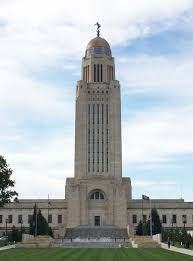A recent Nebraska Supreme Court decision, Abotyes-Mosqueda v. LFA, made it harder for some workers to claim workers compensation benefits and easier for employers to classify workers as independent contractors.
Statutory employer
In this case the plaintiff attempted to join LFA as his statutory employer. A statutory employer is a contractor who works with a subcontractor in order to avoid liability under the Nebraska Workers Compensation Act. LFA subcontracted with Ismail Huerta who recruited a crew that included in the plaintiff. Huerta did not have workers compensation insurance. When plaintiff was hurt, he claimed workers compensation against LFA.
In his favor, plaintiff had evidence showing that after the injury LFA required Huerta to obtain workers’ compensation insurance. That would point towards LFA being a statutory employer.
But the court found that the plaintiff could only join LFA as a statutory employer if he was an employee of Huerta. The court found he was not actually employed by Huerta. The court used a 10 factor test to determine that plaintiff was an independent contractor.
I would note that the court merely went through the traditional 10 factor test rather than look to the economic reality of the relationship between Huerta and the plaintiff. Nebraska appellate courts have traditionally done that analysis. I am not sure if that would have made a difference in this case, but I wish the court would have asked and answered that question.
The ABC Test
The question of whether the plaintiff was an employee likely would have come down differently if the ABC test was applied. In the ABC test a worker is an employee unless: they are 1) free from control of work both under contract and in fact 2) service is outside of normal course of business and 3) the workers is customarily engaged in a trade, occupation, profession or business. The ABC test applies to unemployment benefits in Nebraska.
But there is another distinction between how employees are classified under Nebraska workers’ compensation and unemployment law.
Burden of Proof
Under the Nebraska Employment Security Act (unemployment) the employer has the burden to show they meet the ABC test. But the Nebraska Supreme Court held in this case, that it is the employee who has the burden to prove the employment relationship. The court made a very general citation to the act in support of this proposition. However employees do have the burden of proof to show they were injured arising out of and in the course and scope of employment. It will probably require legislation to shift the burden of proof on employment status onto employers in workers’ compensation cases.






